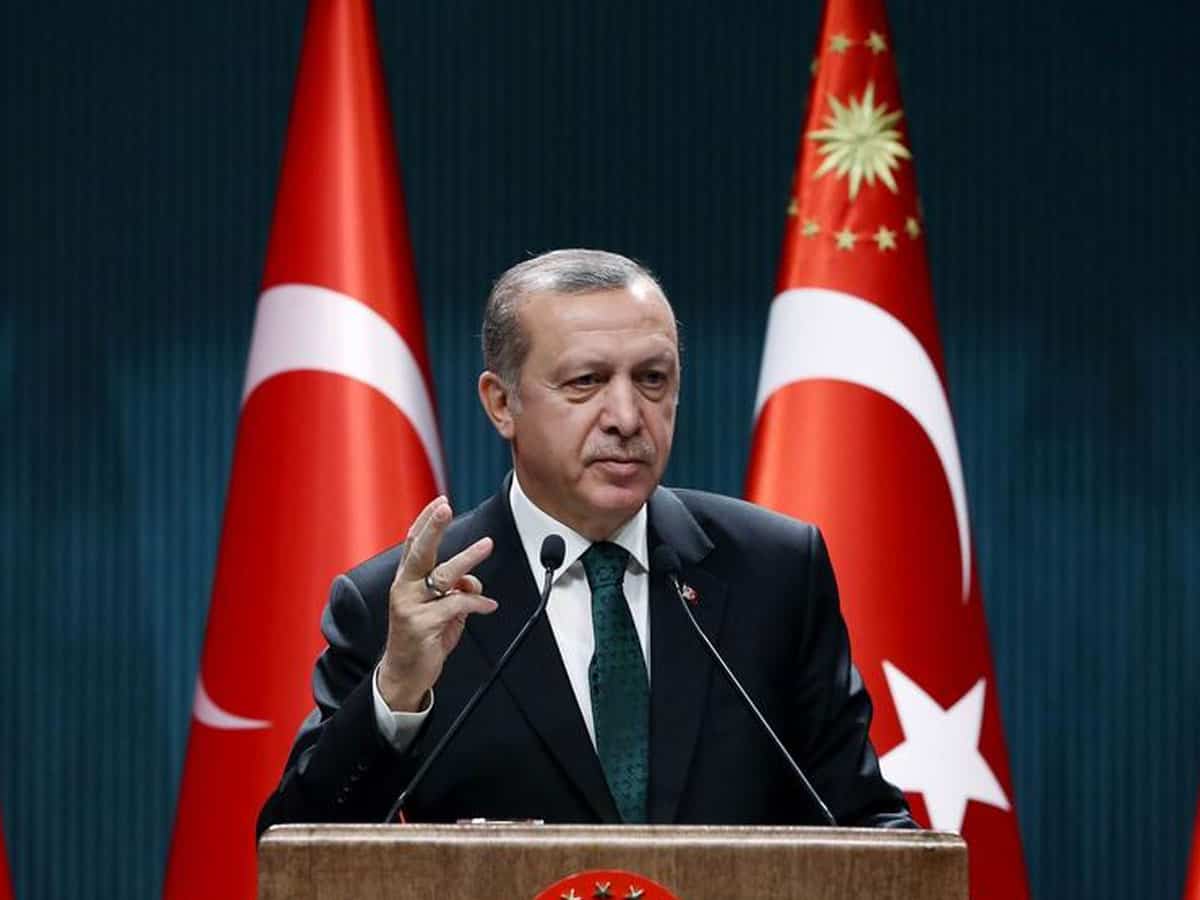
New Delhi: Turkish president Recep Tayyip Erdogan is visiting Kiev, the capital of Ukraine, from February 3. His mission? To assure Ukraine of Turkish support at a time when Russia has amassed 100,000 troops along the Ukrainian border. It is fairly obvious that the wily Turkish leader, obsessed with the idea of reviving the Ottoman empire, wishes to play the role of potential peace-maker to break the impasse between Moscow and Kiev.
As in a number of conflict zones – North Africa, the Middle East, and the South Caucasus, Turkey is trying to intervene in Ukraine too, though choosing to adopt a relatively lower profile. President Erdogan has repeatedly offered to host Russian President Vladimir Putin and his Ukrainian counterpart Volodimir Zhelensky, as part of his effort to mediate between the two antagonists.
“Turkey is trying to play an independent active role in many geopolitical conflict zones, including Ukraine. It is quite logical for the Turkish state leader to propose to Russia and Ukraine his role as a peace-maker and intermediary,’ says Ukrainian academic and political analyst Valentin Yakushik. But he cautions that the “real levers of solving the current geopolitical conflict around Ukraine are held in Washington.” It is this that may hold the key to Turkey’s interest vis-a-vis Ukraine.
Certainly, Turkey, as a NATO member, cannot be indifferent to the conflict. It has also clashed with Russia in a number of conflict zones, most notably in Syria where an impasse persists. In spite of ironing out some of its differences with Russia following the failed coup attempt in 2016, Turkey has refused to recognize the Crimea as Russian territory after Russia annexed the region in 2014, home to its critically important Sevastopol naval base in the Black Sea. Instead, Ankara has kept up a steady emotive rhetoric in solidarity with Crimean Tatars, also a fellow Turkic community.
In Kiev, among other things, Erdogan will oversee the signing of a free trade agreement with the Ukraine, Turkey’s Anadolu News Agency has announced. Trade between Ukraine and Turkey has almost doubled over the past few years, amounting to $7 billion. Turkey also became Ukraine’s largest investor in 2020. Defence collaboration is also going strong with Ukraine set to start joint production of Turkey’s “game changer” Bayraktar TBT 2 drones. It has also used these drones against rebels in Donelson, who are backed by Russia.
A Turkish official has been quoted by the London based Middle East Eye that “Ukraine is like a dam that stops further Russian influence and pressure in the region.”
Nevertheless, Turkey has limited space to manoeuvre this time. As it learnt the hard way after shooting down a Russian aircraft in 2015, that upsetting Russia would boomerang on itself. With its struggling economy Turkey will not risk something similar like a tourist ban from Russia, when Russian tourists comprise 20 percent of all foreign visitors to Turkey. Besides, Turkey has purchased the S-400 Triumf missile system from Russia – a move that upset Ankara’s ties with Washington. Turkey also depends on Russia for its gas imports. Moscow is also building Turkey’s first nuclear power plant, further increasing Russia’s leverages vis-a-vis Turkey.
According to Russian-Kyrgyz analyst Alexander Sobianin, Turkey is furthering the American strategy by confronting Russia with its inroads into places like Syria and the South Caucasus, and now in Ukraine. The rest is for domestic consumption with Erdogan’s AKP party’s waning popularity amongst Turks. Together with a struggling economy it will be interesting to watch how the President’s visit to Ukraine pans out.



